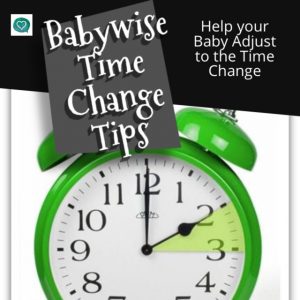Babywise Tips – What’s the Difference Between a Fatigued Baby and a Tired Baby?
posted in: Babies, Babywise, Preparation for Parenting
0
 The symptoms of infant fatigue are different from those of a tired baby. A tired baby can usually recoup needed sleep in one good nap or at least within a 24-hour cycle. The fatigued baby, however, has a disruption in sleep cycles that requires special attention. If parents try to keep their baby up and he skips his naps, the problem gets worse. If they attempt to force sleep on the baby by not responding to cries born out of fatigue, Mom and Dad will quickly become emotional wrecks and Baby will still need help. Fatigue is one of those mystery sleep challenges that must be dealt with carefully. Too much is at stake to let this go without proper assessment. Here are some facts to consider when it comes to dealing with infant fatigue.
The symptoms of infant fatigue are different from those of a tired baby. A tired baby can usually recoup needed sleep in one good nap or at least within a 24-hour cycle. The fatigued baby, however, has a disruption in sleep cycles that requires special attention. If parents try to keep their baby up and he skips his naps, the problem gets worse. If they attempt to force sleep on the baby by not responding to cries born out of fatigue, Mom and Dad will quickly become emotional wrecks and Baby will still need help. Fatigue is one of those mystery sleep challenges that must be dealt with carefully. Too much is at stake to let this go without proper assessment. Here are some facts to consider when it comes to dealing with infant fatigue.
Healthy sleep has two primary components that most parents are unwilling to give up: a baby who sleeps through his naps without waking and one who sleeps in his crib for those naps. While both are important, one must be temporarily suspended for the greater good of the baby who is showing signs of fatigue.
Infant fatigue is similar to adult fatigue. We all know what it feels like to be so tired that sleep eludes us. Fatigue attacks our sleep rhythms. With babies it prevents them from entering the ebb and flow of active and relaxed sleep cycles. It may come from their routine being out of whack for several days, especially during the time of day when naps are the norm. The priority is for Mom to find a non-stressful solution to re-establishing her baby’s circadian rhythm (his normal 24-hour cycle of waking and sleeping).
If you sense your baby needs this kind of adjustment, and you are now in a position to get him back into a predictable routine, we recommend that Mom find a comfortable chair and a good book and allow her baby to take a nap in her arms. This might extend into the next day. On the third day, however, naps return to the crib. This works because the tension between the need and place for sleep is temporarily suspended while Baby gets restorative sleep in the most comfortable way possible. You are not creating a sleep prop because this adjustment is only for a couple of days while you help your baby overcome his fatigue.
Prevention is the best medicine! Try to think through how your perfect sleeper became a fatigued baby. It did not just happen, and one day’s suspension of a baby’s routine does not create fatigue, although two to three days of continual disruption probably will. Take a look at what is going on in your home and with Baby’s schedule, and make the appropriate adjustments.
Excerpt taken from On Becoming Babywise by pediatrician Robert Bucknam, M.D. and Gary Ezzo, M.A. (2017 6th Edition).



